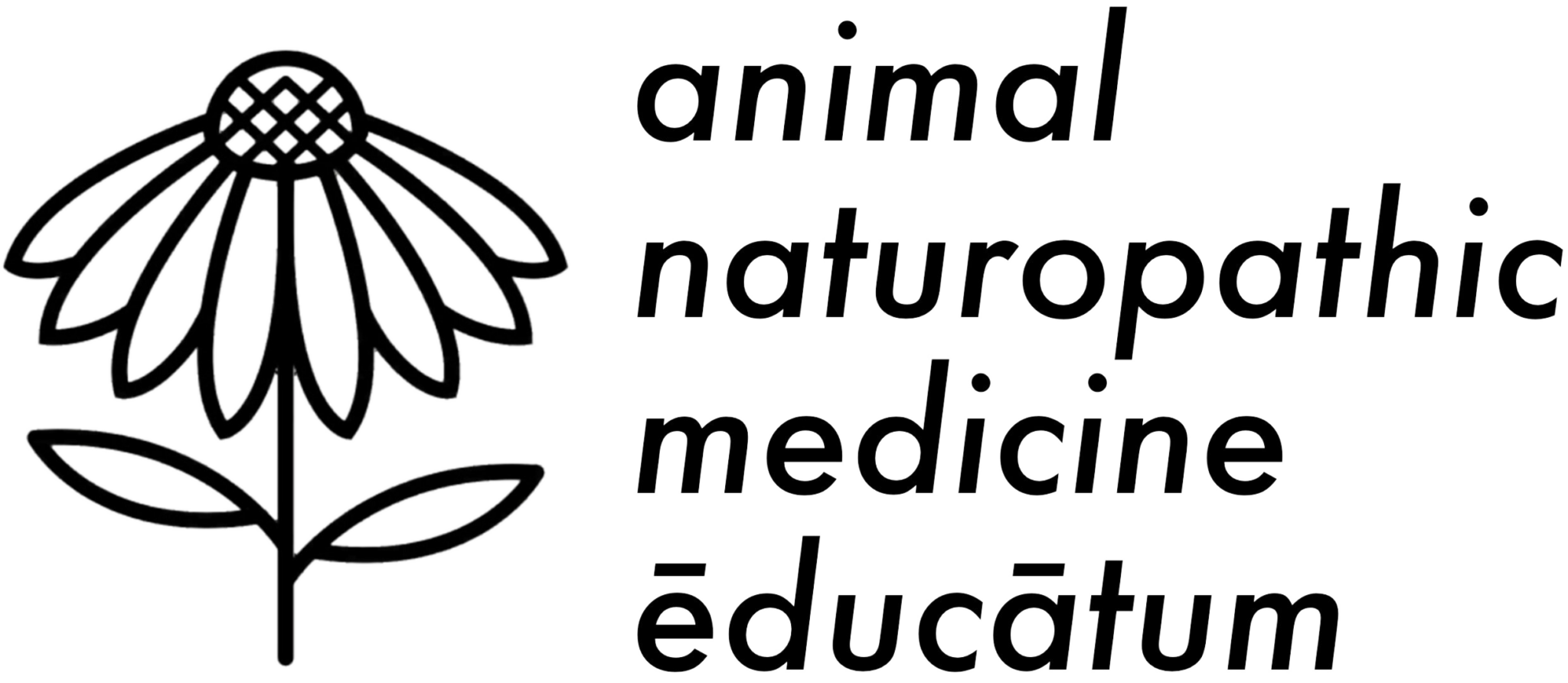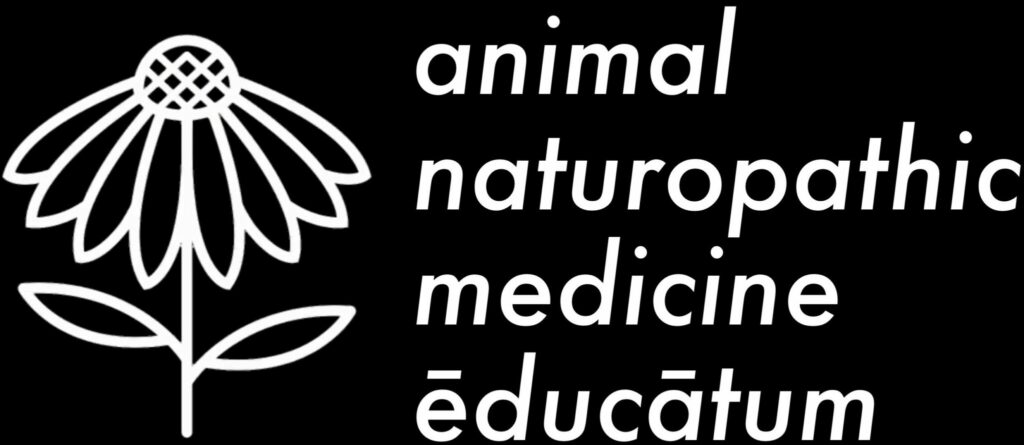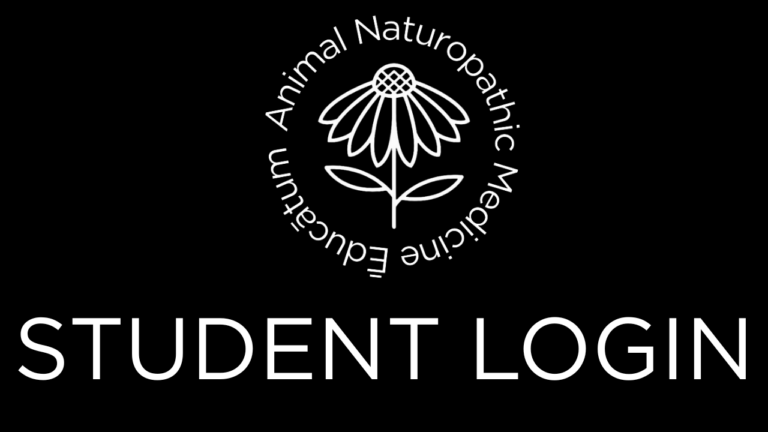FAQs
ANME offers courses that are both challenging and rewarding in the fields of Natural Medicine for Animals. You can learn all of our courses at your own pace. Online or distance learning is not for everyone. Think carefully before you enrol. To succeed in online learning and distance education you will need:
- A commitment to study and your goals.
- To be capable of self-directed learning with our guidance through your course.
- Motivation to pursue your course of study.
- Access to the internet.
- Time management skills, to set time aside for study.
- The ability to work on your own.
- The capability of an independent level of written and spoken English.
- A love for animals and wanting to help owners of animals to help their pets.
If you are not sure contact us, we can help you gain a full understanding of our courses before enrolling.
All text books and course notes are included in the price of all our courses, so students do not have to find extra money throughout their studies.
We also supply EBooks, journals, research papers for free on our online learning portal for students to use and download for further research and analysis within their studies.
You will need a computer or laptop to complete this course. All course content on the learning platform is compatible with Windows and Mac software.
The internet is required to complete all courses.
Once you have enrolled into your chosen course, you will have access to our ‘Thinkific’ online learning platform for the duration of your enrolled course. You can access the Thinkific online learning platforms once you have enrolled. A course log-in link will be provided, then once the student has logged-in your course content will be available on your personal course Dashboard.
Students will receive their Letter of Enrolment from the college. Then on the start date of the course, students will:
Receive access to the online learning portal, to access their course Orientation. The Orientation has all information pertaining to the course, from course structure, timetables, study tools, assessment criteria and more.
Textbooks not available as an Ebook will be posted to the student.
Students can enrol at any time. However, there are courses that have prerequisites which means that certain courses need to be studied prior to enrolment acceptance. Check with the college administration for details.
All courses have flexible enrolment periods offered at different times throughout the year. Check your chosen course for details or ask the College for a course prospectus.
Although applying via the online learning portal is the preferred method, prospective students can contact admin vis our email to request an E-form for Enrolment through admin@anme.com.au. Students can then apply online using a [PDF] format where you can then email or scan and email your documents to us. Or students can download the Enrolment form (PDF) and submit the documents via scan or by simply taking clear photos of each filled-in page of the Enrolment Forms and emailing to admin@anme.com.au
When emailing; please ensure the file size of all attachments does not exceed the attachment limit preventing the email coming through to us. Some documents may need to be sent over two or three separate emails.
Any questions at all, please contact admin for assistance.
You will receive an email confirming your submission.
All courses at the college are offered on a part-time study bases through online education, to ensure that students have a sustainable work- life- study balance. However, students that can commit more time to their studies will be able to finish the courses in-line with the set course study schedule.
Students can click on the Course Prospectus LINK that is associated with the course page that they are interested in. The Course Prospectus page gives the student a full description of the course, subjects, fees and requirements for study. Or students can also contact the college via our enquiry form on the website or email the college directly with more questions about the course prospectus.
All of our courses do require a basic knowledge and understanding of the applicable animal of study. When attending a practical, it is preferred that all students either have owned, or currently own an applicable animal to their course of study and are comfortable with handling such animals.
The courses are delivered through a blend of online learning modules, webinars, audios, and reference materials.
All applicable webinars or audios relating to your course, are recorded and singularly uploaded onto the students own online dashboard on the learning portal.
Each module of the course is designed to ‘layer-up’ and build upon information so that the content is consolidated at each step. Embracing the knowledge to be gained from your studies is key to enjoying the journey of your education and achieve your goals. Communication with the College is key in enabling us to better support you through your learning.
The programs are designed to cater for a wide level of academic levels and student ages. Some students may not have studied for a very long time, yet their passion to learn something new enabling them the opportunity to work with animals is what will inspire them to do well. It must be stated that the course does contain scientific principles which may be difficult to grasp for those that have no prior knowledge or studies in the science realm of anatomy, biology, and chemistry.
The courses have been primarily designed for part-time study purposes for students that work full time. The courses are delivered through the online learning portal, students can complete modules at their own pace or the part-time study pace that has been set by the college. The courses are structured into applicable modules of study, so students clearly understand where in their studies they are up to.
All students are required to meet attendance requirements as per the course outline. All course webinars and the modules on the learning portal are monitored and calculated by the college server and weekly student progress reports are synced by the program for the lecturer to review.
If you have personal experiences that are impacting on your studies you can apply for special circumstances to receive special consideration that can result in assessment extensions, deferred examinations.
Please note: all courses are ‘opened-ended’ so that students can take as long as they need to complete the enrolled course. There are no course expiration dates.
Under Australian record retention requirements, the College is required to hold your actual examinations for 12 months. Because of this requirement, the ANME policy states that we will hold completed examination papers for 12 months, after which time they are destroyed securely. The Thinkific online learning portal policy meets the US requirements to hold examination results of online assessments for up to five years. All academic records and graduation transcripts are kept for all students.
Yes, deferral is available for all courses. As there is no expiration for any of our courses, students can defer at any time. Students are advised to contact the ANME Administration for advice on their own situation.
Please only send copies of your official documents, do not send us your original documents, as the college does not return enrolment documents. Documents not correctly verified will result in delays in the processing of your application.
In relation to assignments, hard-copy versions are not returned to the student, so please make copies of your original documents.
Recognition of Prior Learning (RPL) is an assessment process that involves assessment of the individuals’ relevant prior learning to determine the credit outcomes of an individual application for credit. RPL assesses the individuals’ formal and/or informal learning to determine the extent to which that individual has achieved the required learning outcomes, competency outcomes, or standards for entry to, and/or partial or total completion of, a qualification.
The RPL Principles for Good Practice require that RPL recognise learning regardless of how, when and where it was acquired, provided that the learning is relevant and current to the learning outcomes or competencies in a subject, unit, module, course or qualification. RPL has always differed to other forms of assessment, in that it is based both around an individual and the competency being assessed. Therefore, your evidence requirements will vary. Professional judgement is used to make an assessment decision as to the individuals’ demonstrated equivalency, regardless of the format of the evidence supplied.
RPL assessment must ensure that evidence is valid, authentic, current and sufficient and that the process is fair, flexible, reliable and valid. In order to provide the flexibility to candidates, we can contextualise the RPL assessment instruments to match each individuals’ unique background, prior-learning requirements. This occurs through a series of structured procedures that provide a personalised experience to the candidate, whilst still meeting the principles of assessment and rules of evidence requirements.
RPL for courses is granted to those students that have previously studied Veterinary Medicine or Naturopathic Medicine at a Bachelor Degree Australian level University.
Contact the College for the RPL forms and discuss your options.
A competency-based assessment is the process whereby you are assessed as to whether you can provide evidence of the specific skills or knowledge required to meet the criteria for a specific qualification. Definition of competency: Competency is the consistent application of knowledge and skill to the standard of performance required in the workplace. It embodies the ability to transfer and apply skills and knowledge to the new and applicable situation and environment. Competency-based assessment is required for all Australian industry level learning.
Students do not have to enter the field as a professional after finishing the course of study.
We have pet owner and short courses available for those wishing to gain a further understanding on certain topics related to animal health and well being. Please note that these short courses for pet owners are not a recognised qualification and upon completion the student is awarded a Statement of Attainment.
However, those that do decide to study a certification (Certificate, Advanced Certificate or Professional Certificate) course are recognised as an industry certified qualification.
The field of Naturopathy is forever growing as more and more pet owners seek the services and be educated in species appropriate health care for their animals.
More and more vets are incorporating natural medicines and Naturopathy into their clinics and are looking for qualified individuals to value-add to their business by suppling an added service for their clients.
Although we cannot provide you a guaranteed business or employment opportunities, there are plenty of opportunities available if you look at your target market and competitors for inspiration and ideas to place your business in amongst the field.
You are your own unique self and what you have to offer and how you offer your services will be unique to those who can identify with who and how you will help their animals.
As with any business there is a need to be focused and driven to be successful. However, as more and more people find out about Animal Naturopathy and the modalities within the Naturopathic paradigm and looking for complimentary ways to support their animals health and wellbeing, we are very pleased to say that many of our graduates are working full time or part-time and have built successful businesses within the industry.
Upon graduating we offer you support and guidance in areas to further investigate as ‘value adds’ to your business.
Associations that accredit the courses are also a means of support and guidance. For example, The Small Animal and Equine Naturopathic Association offers free advertising of your business on their website as a part of your membership fees, along with other mentoring opportunities for graduates.
The college offers you the opportunity to study further with us to help expand your business goals.
All terms refer to treatments that aid in health and healing. A lot of these terms all have a very similar definition and all stems from variations of Traditional Medicine.
Alternative medicine refers to non-mainstream practices used instead of Conventional Medicine (Allopathic Medicine). Any of a range of medical therapies that are not regarded as orthodox by the medical profession, such as herbalism, naturopathy, hydrotherapy, acupuncture.
Complementary Medicine (also known as ‘alternative’ medicines) include vitamin and mineral analysis, aromatherapy and homoeopathic products.
Integrative Medicine is when these Alternative therapies are used along with Traditional Western Medicine to create a framework that is focused on health. Integrative medicine seeks to understand the individual as a whole and applies many forms of therapy to improve wellness.
Allopathic medicine is a system in which medical doctors and other healthcare professionals (such as nurses, pharmacists, and therapists) treat symptoms and diseases using drugs, radiation, or surgery.
Functional medicine focuses on creating individualised therapies tailored to treat underlying causes of illness. Functional medicine is a systems biology–based approach that focuses on identifying and addressing the root cause of disease.
Foundational Medicine and Traditional Medicine refers to the knowledge, skills and practises based on the theories, beliefs and experiences indigenous to different cultures and geological areas, used in the maintenance of health and in the prevention, diagnosis, improvement or treatment of physical and mental illness. Traditional medicine is often termed alternative or complementary medicine in many countries.
Holistic Medicine or holistic healing is often defined as a form of Naturopathic healing that looks at the whole person: body, mind, and spirit.
Naturopathic Medicine is health care that uses all appropriate therapeutic approaches—conventional and non-mainstream, within a framework that focuses on the trilogy of health, through physical body movement, mental health and well-being right down to the cellular level. The whole entity of the being is considered to reach a level of homeostasis.


